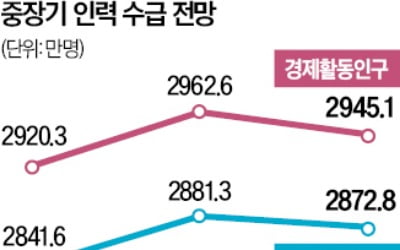>>> 전기대학 본고사 시험문제 <<<...서울대학 영어 < 6 >
-
기사 스크랩
-
공유
-
댓글
-
클린뷰
-
프린트
IX. 다음을 일고 주어진 문장이 본문의 애용에 부합하면 T자를, 부합하지
않으면 F자를 답안지에 쓰라.(틀린 답을 쓸 경우 문항당 2점을 감점함. 단
이 문제(IX)의 접수 합계가 0점 이하일경우 0점으로 처리함.(8점)
When most people believed in an essentially static and unchanging
universe, the question of whether or not it had a beginning was really
one of metaphysics or theology. One could account for what was
observed equally well on the theory that the universe had existed
forever or on the theory that it was set in motion by God at some
finite time in such a manner as to look as though it had existed
forever. But in 1929, Edwin Hubble made the landmark observation that
wherever you look distant galaxies are moving rapidly away from us.
In other words, the universe is expanding. This means that at earlier
times objects would have been closer together. In fact, it seemed that
there was a time, about ten or twenty thousand million year ago, when
they were all at exactly the same place and when, therefore, the
density of the universe was infinite. This discovery finally brought
the question of the beginning of the universe into the realm of
science.
Hubble''s observations suggested that there was a time, called the
big bang, when the universe was infinitesimally small and infinitely
dense. Under such conditions all the laws of science, and therefore
all ability to predict the future, would break down. If there were
events earlier than this time, then they could not affect what happens
at the present time. Their existence can be ignored because it would
have no observational consequences. One may say that time had a
beginning at the big bang, in the sense that earlier times simply
would not be defined. It should be emphasized that this beginning in
time is very different form those that had been considered previously.
In an unchanging universe a beginning in time is something that has to
be imposed by some being outside the universe; there is no physical
necessity for a beginning. One can imagine that God created the
universe at literally any time in the past. On the other hand, if the
universe is expanding, there may be physical reasons why there had to
be a beginning. One could still imagine that god created the universe
at the instant of the big bang, or even afterwards in just such a way
as to make it look as though there had been a big bang, but it would
be meaningless to suppose that it was created before the big bang. An
expanding universe does not preclude a creator, but it does place
limits on when he might have carried out his job.
* infinitesimally small : extremely small
1. Up to 1929, most people, whether they believed in God''s creation or
not, accepted the idea of unchanging universe.
2. If the universe is expanding, one may assume that there was a time
when objects were all at exactly the same place.
3. One may say that time started with the big bang, in the sense that
nothing could have happened before the universe began expanding.
4. it was after the discovery of the expanding universe that the
question of the beginning of the universe became a scientific inquiry.
5. The big bang theory denies the existence of God in that it places
limits on when he might have created the universe.
6. If there were events before the big bang, they must have an effect
on what happens now.
않으면 F자를 답안지에 쓰라.(틀린 답을 쓸 경우 문항당 2점을 감점함. 단
이 문제(IX)의 접수 합계가 0점 이하일경우 0점으로 처리함.(8점)
When most people believed in an essentially static and unchanging
universe, the question of whether or not it had a beginning was really
one of metaphysics or theology. One could account for what was
observed equally well on the theory that the universe had existed
forever or on the theory that it was set in motion by God at some
finite time in such a manner as to look as though it had existed
forever. But in 1929, Edwin Hubble made the landmark observation that
wherever you look distant galaxies are moving rapidly away from us.
In other words, the universe is expanding. This means that at earlier
times objects would have been closer together. In fact, it seemed that
there was a time, about ten or twenty thousand million year ago, when
they were all at exactly the same place and when, therefore, the
density of the universe was infinite. This discovery finally brought
the question of the beginning of the universe into the realm of
science.
Hubble''s observations suggested that there was a time, called the
big bang, when the universe was infinitesimally small and infinitely
dense. Under such conditions all the laws of science, and therefore
all ability to predict the future, would break down. If there were
events earlier than this time, then they could not affect what happens
at the present time. Their existence can be ignored because it would
have no observational consequences. One may say that time had a
beginning at the big bang, in the sense that earlier times simply
would not be defined. It should be emphasized that this beginning in
time is very different form those that had been considered previously.
In an unchanging universe a beginning in time is something that has to
be imposed by some being outside the universe; there is no physical
necessity for a beginning. One can imagine that God created the
universe at literally any time in the past. On the other hand, if the
universe is expanding, there may be physical reasons why there had to
be a beginning. One could still imagine that god created the universe
at the instant of the big bang, or even afterwards in just such a way
as to make it look as though there had been a big bang, but it would
be meaningless to suppose that it was created before the big bang. An
expanding universe does not preclude a creator, but it does place
limits on when he might have carried out his job.
* infinitesimally small : extremely small
1. Up to 1929, most people, whether they believed in God''s creation or
not, accepted the idea of unchanging universe.
2. If the universe is expanding, one may assume that there was a time
when objects were all at exactly the same place.
3. One may say that time started with the big bang, in the sense that
nothing could have happened before the universe began expanding.
4. it was after the discovery of the expanding universe that the
question of the beginning of the universe became a scientific inquiry.
5. The big bang theory denies the existence of God in that it places
limits on when he might have created the universe.
6. If there were events before the big bang, they must have an effect
on what happens now.

